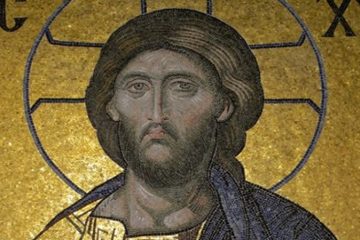Abba Dorotheos
Let us investigate how it is that sometimes, if a person hears something unkind, they’re able to let it go without becoming upset, whereas at other times, they hear something and are immediately offended. What’s the reason behind this difference? Is there only one cause or many? The way I see it is that there are many, but there’s one which engenders all the rest, so to say. Let me say how. In the first place, someone’s just finished praying or thinking good thoughts and, as you might say, is in a good state. Then they’re able to bear with the other person and let it go without becoming upset. Or it may be that the person has an affection for the other and is therefore able to put up with what’s been said to them. And, of course, it may be that someone holds in contempt the person trying to offend them and brushes aside what they say as ridiculous. They don’t deign to pay any attention either to the person or to what they say and do…
So it can happen that you may not be troubled because you disdain the other person. But this is clearly the way to perdition. Therefore you may not be troubled by someone speaking unkindly to you either because you’re in a good state or because you look down on them. There are many other causes of this, it might be said, but the real cause of distress is that, after careful examination, we don’t reproach ourselves. This is the reason for all the heartache; this is why we’ll never be at peace. It’s no wonder that we hear from all the saints that there’s no other way than this*. And we see that no-one’s ever trodden another path and found peace. Yet we expect to find peace or to keep to the strait and narrow without ever subjecting ourselves to self-reproach. Indeed, it matters not how many spiritual achievements you have, if you don’t follow this path, you’ll forever wound others and be wounded yourself, and all your efforts will have been in vain.
What joy, what peace those people will have who, as Abba Pimin says, reproach themselves**. Then, should any damage, dishonor or sorrow befall them, they’ll be prepared for it by making themselves ready, and won’t be upset. Is there any greater respite than this?
But then someone might say: ‘What if somebody offends me and I examine myself and can’t find any reason I might have given them to act like this? How can I reproach myself in that case?’. If you really examine yourself, with fear of God, you’ll find that you’ve always given a reason, whether by words, deeds, or actions. Even if you can honestly say you didn’t do anything wrong in this particular instance, it’s likely that you did so at some other time, either regarding the same issue or another one. It may also be that you’ve wounded someone else, and you have to pay for that or, often, for many other sins. So if you examine yourself carefully, as I said, with fear of God, and inspect your conscience thoroughly, you’ll see that there’s always something you’ve done wrong.
And again, you might be at peace with yourself and the world, and someone comes and upsets you by saying something crass. You then think you’re right to be upset with them because if they hadn’t come along and annoyed you wouldn’t have sinned against them. This, too, is a mockery and an absurdity. Was it the person who was being offensive who put the passion in your soul? No, they revealed the passion which was already within you, so that you could repent, if you wanted to. That’s like a loaf of fine white bread which looks wonderful on the outside, but is all moldy on the inside. So there you were, sitting at peace, or so you thought, but you had within you a passion of which you weren’t aware. Someone says a wrong word to you and out spills all the nastiness that was concealed inside you. If you want to find mercy, you have to repent, cleanse yourself and make progress. And you should see that you ought to be thankful to the other person, who’s actually done you such a good turn.
* ‘Blessed Theofilos, the archbishop, once went to Mount Nitria and the abba of the mountain came to him. The archbishop said to him: “What more have you found on this road, Father?”. The Elder replied: “Always examine and reproach yourself”. Abba Theofilos answered: “There is no other path but this one”’ (Abba Pimin, PG 65, 197D, 1).
** ‘Abba Pimin said that the blessed Abba Anthony said: “The greatest power that people have is to acknowledge their errors before the Lord and to expect temptations until their last breath’” (Abba Pimin, PG 65, 353, 125).
Source: pemptousia.com




0 Comments